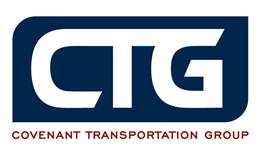| | On June 5, 2020, in addition to amending the Bylaws to implement proxy access and advance director nomination notice provisions, the Compensation Committee adopted the Covenant Transportation Group, Inc. Recoupment Policy (the “Recoupment Policy”) and an updated Covenant Transportation Group, Inc. Executive Stock Ownership, Retention, and Anti-Hedging and Anti-Pledging Policy (the “Stock Ownership Policy”). Pursuant to the Recoupment Policy, in the event of a material financial restatement after the effective date of the Recoupment Policy, the Company will require, to the fullest extent permitted by applicable law, that an employee who was subject to the reporting requirements of Section 16 of the Securities Exchange Act of 1934, as amended, forfeit or reimburse the Company for any incentive-based compensation (including cash- and equity-based incentive compensation) paid or granted to such employee at any time during the performance period relating to the applicable incentive-based compensation, in the sole and absolute discretion of the Board, as further provided in the Recoupment Policy. The Recoupment Policy has a three-year look back period. The foregoing description of the Recoupment Policy is qualified in its entirety by reference to the full text of the Recoupment Policy, which is attached hereto as Exhibit 99.1. Pursuant to the Stock Ownership Policy, the Company’s Chief Executive Officer, Co-Presidents, Chief Financial Officer, and non-employee directors are required to build certain stock ownership over time (six times annual base salary for the Chief Executive Officer, one times annual base salary for the Co-Presidents and Chief Financial Officer, and five times annual cash retainer for the non-employee directors). Such individuals are required to retain post-tax shares from each award on exercise, vesting, or earn-out, until such individual complies with the stock ownership levels required by the Stock Ownership Policy. In addition, the Stock Ownership Policy prohibits hedging transactions in the stock of the Company (including, but not limited to, short-selling, options, puts, and calls, as well as derivatives such as swaps, forwards, and futures), pledging stock of the Company as collateral for loans, and purchasing stock of the Company on margin. The Stock Ownership Policy does not include a hardship exemption. The foregoing description of the Stock Ownership Policy is qualified in its entirety by reference to the full text of the Stock Ownership Policy, which is attached hereto as Exhibit 99.2. |
